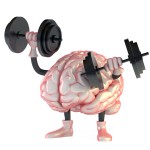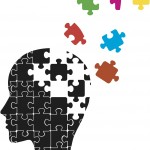
Edzard Ernst shines a light on the unfounded claims presented in a meta-analysis published today on acupuncture for amnestic mild cognitive impairment.
[read the full story...]
Edzard Ernst shines a light on the unfounded claims presented in a meta-analysis published today on acupuncture for amnestic mild cognitive impairment.
[read the full story...]
Akshay Nair explores the results of a systematic review of cognitive tests for dementia and mild cognitive impairment, which focuses on the MMSE, Mini-Cog, ACE-R and MoCA instruments. Along the way he explains how diagnostic tests work and how sensitivity and specificity are useful measures to get your head around.
[read the full story...]
Clarissa Giebel summarises a recent systematic review that investigates the effectiveness of various psychotherapies (CBT, interpersonal therapy, counselling) for depression and anxiety in people with dementia or mild cognitive impairment.
[read the full story...]
Akshay Nair summarises a recent systematic review and meta-analysis of modifiable predictors of dementia in mild cognitive impairment. The meta-analysis finds that diabetes and the presence of any neuropsychiatric symptoms significantly predicted the conversion of mild cognitive impairment to dementia.
[read the full story...]Jake Crawshaw reports on a recent systematic review of cognitive and exercise interventions for older people with and without cognitive impairment.
[read the full story...]
As part of its excellent ‘Too Much Medicine’ series, the British Medical Journal last week published an important analysis of the current direction of travel in the field of dementia care. The article is hard to ignore, written as it is by highly authoritative academics from the UK and Australia, including Professor Carol Brayne, an [read the full story…]

Cognitive decline describes increasing problems with memory, comprehension, language and mental agility. Mild cognitive impairment means that a person has cognitive decline beyond that which might be expected for their age, but generally do not experience problems with everyday living (Alzheimer’s Society, 2012). Dementia has similar symptoms, but these are more severe and people with [read the full story…]

The symptoms of mild cognitive impairment (MCI) include problems with cognitive functioning such as day-to-day memory. In some individuals it is the first sign of dementia, whereas in others it may be due to resolvable factors such as being the side-effect of medication (Alzheimer’s Society, 2012). At present it is unclear how many people with [read the full story…]

It was relatively recently that every Tom, Dick and Harry in the scientific community was popping vitamin E supplements in the hope that this antioxidant would help protect them from the damaging effects of free radicals. Us elves get our vitamin E from the vegetables, fruits and whole grains that make up our naturally healthy diet. Many single [read the full story…]

Early diagnosis and effective treatment of dementia will help large numbers of the population remain independent for longer. Cholinesterase inhibitors are one of the anti-dementia drugs that are used to treat Alzheimer’s disease, and they are often used immediately after diagnosis. This new systematic review from the Cochrane Dementia and Cognitive Improvement Group, looks at [read the full story…]